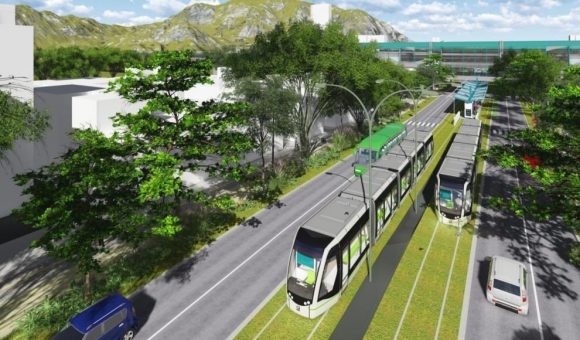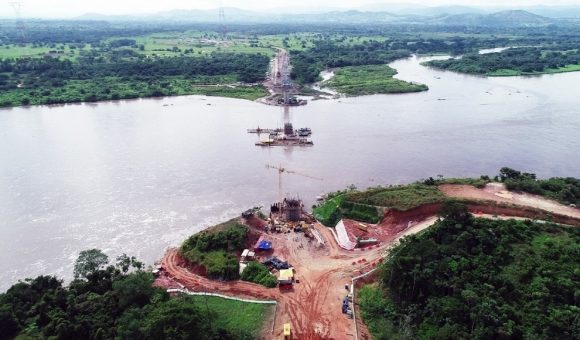EPM hidroituango collapse study March 2019

EPM: DESIGN FLAW CAUSED HIDROITUANGO TUNNEL COLLAPSE; RECOVERY UNDERWAY
Medellin-based multinational electric power giant EPM on March 1, 2019 unveiled a long-awaited consultant’s report on the causes behind the April 2018 tunnel collapse that has resulted in a three-year delay in power output from the 2.4-gigawatt “Hidroituango” hydroelectric plant in Antioquia.
“The results determine that the hypothesis of greater probability is that the obstruction of the auxiliary diversion tunnel (GAD) was due to the ‘progressive erosion of areas of weakness of the rock,’ located on the floor of the tunnel,” according to EPM, quoting the report from Norwegian-Chilean engineering consulting firm Skava Consulting.
“The zones of weakness of the rock were not treated properly, due to a deficiency in the design during the advisory stage,” which was undertaken by Ituango Generation Consortium (Integral – Solingral),” according to EPM’s summary of the study.
A full copy of the study is available here: https://www.epm.com.co/site/estudio-causa-raiz-hidroituango
“The study, which employed scientific methods, was only aimed at analyzing the root cause of a specific event: the plugging in the auxiliary diversion tunnel (GAD) structure that had been in operation since September 2017,” according to EPM.
For the Skava report, seven German, Swiss and Chilean engineers with more than 25 years experience undertook a geotechnical engineering study tapping their expertise in tunnels and dams, in rock engineering, in geology and hydrology, and in civil engineering for mining projects, metering systems and hydroelectric power plants, according to EPM.
“The auxiliary GAD diversion tunnel, which was supposed to operate temporarily, was planned from the end of 2013 — when the original diversion tunnels were still under construction — as an alternative that would avoid an additional delay of one year or more in the construction of the main works,” according to EPM’s summary.
When EPM took over the project via a build-own-operate-maintain-transfer (BOOMT) contract in March 2011, “the project schedule already had considerable delays, which could affect [Colombia’s] energy supply,” the company noted.
“The results of this study do not impact the recovery process of the project, in which we continue to work tirelessly. The Ituango hydroelectric project advances in its recovery and in the reduction of risks for people living below the main works.
“If everything progresses as planned, it will contribute electric power [to the national grid] from the year 2021,” EPM concluded.
Blame Games Begin
Meanwhile, a host of Colombia regulatory agencies have already begun piling-on accusations against former EPM and Hidroituango officials over the tunnel collapse and the inevitable economic impacts on consumers and the city of Medellin, which gets 25% of its annual revenues from EPM.
The three-year delay in lost power sales, plus clean-up and reconstruction costs, likely will add at least US$1 billion to the original US$4-billion to US$5-billion cost estimate for the project.
Colombia Attorney General Nestor Humberto Martinez announced February 27 that he’s planning to bring charges against former Hidroituango SA manager Luis Guillermo Gómez Atehortua, and former EPM-Ituango manager Luis Javier Vélez Duque for alleged failure to meet legal contract requirements.
In addition, Martinez announced that he’s also considering bringing charges against six other former officials connected to the project, including former EPM E.S.P. manager Juan Esteban Calle Restrepo and former Hidroituango project board members Ana Cristina Moreno Palacios, Hugo Alejandro Mora Tamayo, Juan Felipe Gaviria Gutiérrez, Jesus Arturo Aristizábal, and Maximiliano Valderrama Espinosa.
The Attorney General’s investigations focus on the project contracting process and environmental damage arising from construction and the subsequent tunnel collapse in 2018.
The Attorney General stated that preliminary investigations have discovered “improper management of solid waste” that “had a negative impact on natural resources with effects such as the quality, quantity and fluidity of the water; the erosion of the soil and the eventual instability of the mountain” adjacent to the dam.
“During the execution of the project there were contingencies that would have been rejected by those in charge of the project, who would not have had the capacity to attend them because they were prepared for a situation of lesser dimension,” according to the Attorney General.
The Attorney General’s investigation has “identified alleged inconsistencies from the beginning of the project as alleged anomalies in the pre-contractual phase and alleged deficiencies in the execution of the contracts, the studies of design and execution of the work, as well as in the additions authorized to the signing contractor,” according to Martinez.
In response to the allegations, EPM issued a statement saying that it has “acted transparently and within the framework of what the law allows. The company reiterates its permanent disposition to collaborate with the Attorney General’s Office in its investigative process, and with all the control entities that are [regulating] the Hidroituango project, as it has done so far.”
CGR Probe
A parallel investigation now underway by Colombia’s Controller General of the Republic (CGR) finds that to date, the cost of the Hidroituango project is close to COP$11.5 trillion [US$3.7 billion], “of which 38.23% (more than COP$4.3 trillion/US$1.4 billion) correspond to EPM’s own resources. The remaining 61.77% comes from debt with multilateral banks, equivalent to almost COP$7.1 billion [US$2.3 billion].
“The CGR will estimate the additional costs that will be generated in the future due to deficiencies and adverse situations that have arisen during the planning and development of the project,” according to the agency.
















